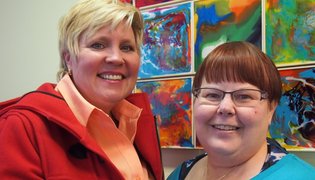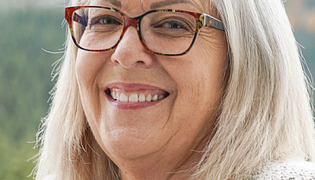Meet Cheryl And Lori
Stories
Many people in the local community have shared experiences of feeling overwhelmed, isolated and powerless due to their journey of impact with dementia. Whether they have received a diagnosis themselves or were impacted in other ways, they share their experiences to empower others. Explore these stories below to hear from real people who live and work in Calgary and the surrounding area, learn valuable life lessons and seek tips and inspiration.
Have a story of your own to share? Please email us.



